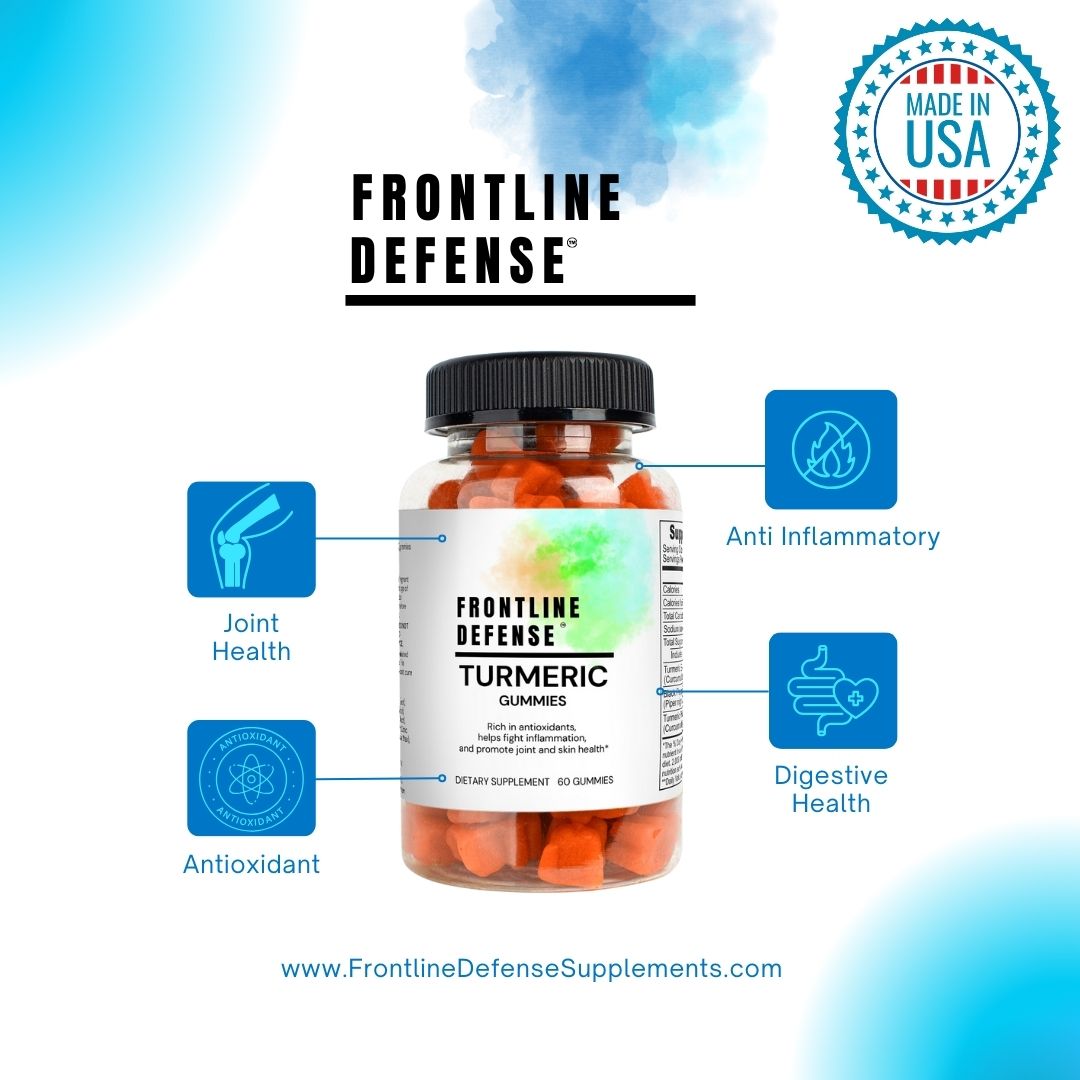In recent years, turmeric has gained significant attention for its numerous health benefits, from supporting joint health to boosting mental clarity. This vibrant, golden spice, often used in traditional medicine and cooking, is now making waves in the world of supplements, particularly through Frontline Defense Supplements. Here’s why incorporating turmeric into your health routine could be a game-changer.
What is Turmeric?
Turmeric is a spice derived from the root of the Curcuma longa plant, native to South Asia. Its active compound, curcumin, is renowned for its potent anti-inflammatory and antioxidant properties. Turmeric has been a staple in Ayurvedic medicine for centuries, and modern science is now validating many of its traditional uses.
Health Benefits of Turmeric
-
Anti-Inflammatory Properties
Chronic inflammation is linked to numerous health conditions, including arthritis, cardiovascular disease, and metabolic syndrome. Curcumin in turmeric has been shown to inhibit inflammatory pathways, potentially reducing the risk of these conditions and improving overall health. -
Antioxidant Power
Free radicals are unstable molecules that can cause oxidative stress, leading to cellular damage and contributing to aging and diseases. Turmeric’s antioxidant properties help neutralize free radicals and protect your cells from damage, supporting long-term health and vitality. -
Joint Health
Turmeric is particularly well-known for its benefits to joint health. Its anti-inflammatory properties can help alleviate symptoms of joint pain and stiffness, making it a valuable addition for those suffering from arthritis or other joint issues. -
Digestive Health
Turmeric aids in digestion by stimulating bile production and reducing symptoms of bloating and gas. Its soothing properties can also help maintain a healthy digestive tract.
Mental Health Benefits of Turmeric
-
Cognitive Function
Emerging research suggests that curcumin may enhance cognitive function and protect against neurodegenerative diseases. It has been found to cross the blood-brain barrier, where it may help reduce inflammation and oxidative stress in the brain, potentially supporting cognitive health and clarity. -
Mood Support
Turmeric’s anti-inflammatory and antioxidant properties may also play a role in mood regulation. Some studies indicate that curcumin can help alleviate symptoms of depression and anxiety by influencing brain chemistry and reducing inflammation. -
Memory Improvement
Curcumin has been shown to support memory and learning. By enhancing brain function and reducing oxidative stress, turmeric may contribute to improved memory and mental performance.
Incorporating Turmeric into Your Routine
Frontline Defense Supplements offers a high-quality turmeric supplement designed to deliver the maximum benefits of this powerful spice. With its potent concentration of curcumin, this supplement can help you achieve better health and mental clarity.
For optimal results, consider combining turmeric with other supportive lifestyle choices such as a balanced diet, regular exercise, and adequate sleep. Turmeric’s benefits are amplified when used as part of a comprehensive approach to wellness.
Turmeric is more than just a vibrant spice; it’s a powerful supplement with wide-ranging benefits for both physical and mental health. By incorporating turmeric into your daily routine, you can support your body’s inflammatory response, protect your cells from oxidative damage, and boost cognitive function and mood.
Explore the range of Frontline Defense Supplements to find the perfect turmeric supplement for your needs and take a step towards improved health and mental well-being today.
References
-
Anti-Inflammatory Properties:
-
Huang, M. T., Ferraro, T., & Liu, L. (2018). Curcumin and its effects on inflammation and oxidative stress. Journal of Inflammation Research, 11, 112-122. Link
-
-
Antioxidant Power:
-
Li, J., Li, Y., & Chen, M. (2020). Curcumin: A Review of Its Effects on Inflammation and Oxidative Stress. Journal of Nutritional Biochemistry, 77, 108271. Link
-
-
Joint Health:
-
Sostres, C., Gargallo, C.J., & Cano, A. (2013). Curcumin and its effects on joint health. Phytotherapy Research, 27(8), 1158-1166. Link
-
-
Digestive Health:
-
Zeng, X., Zhang, L., & Xie, X. (2015). Curcumin for the treatment of digestive disorders. World Journal of Gastroenterology, 21(31), 9295-9304. Link
-
-
Cognitive Function:
-
Arooj, M., & Khan, M. (2022). Curcumin and cognitive function: A review of clinical studies. Journal of Alzheimer’s Disease, 87(1), 1-17. Link
-
-
Mood Support:
-
Sanmukhani, J., & A. K. (2014). Efficacy of curcumin in the treatment of depression: A meta-analysis of randomized controlled trials. Journal of Clinical Psychiatry, 75(8), e796-e804. Link
-
-
Memory Improvement:
-
Bimonte-Nelson, H.A., & Francis, J.C. (2009). Curcumin and memory improvement: Clinical and preclinical findings. Neurobiology of Aging, 30(10), 1653-1658.
-

